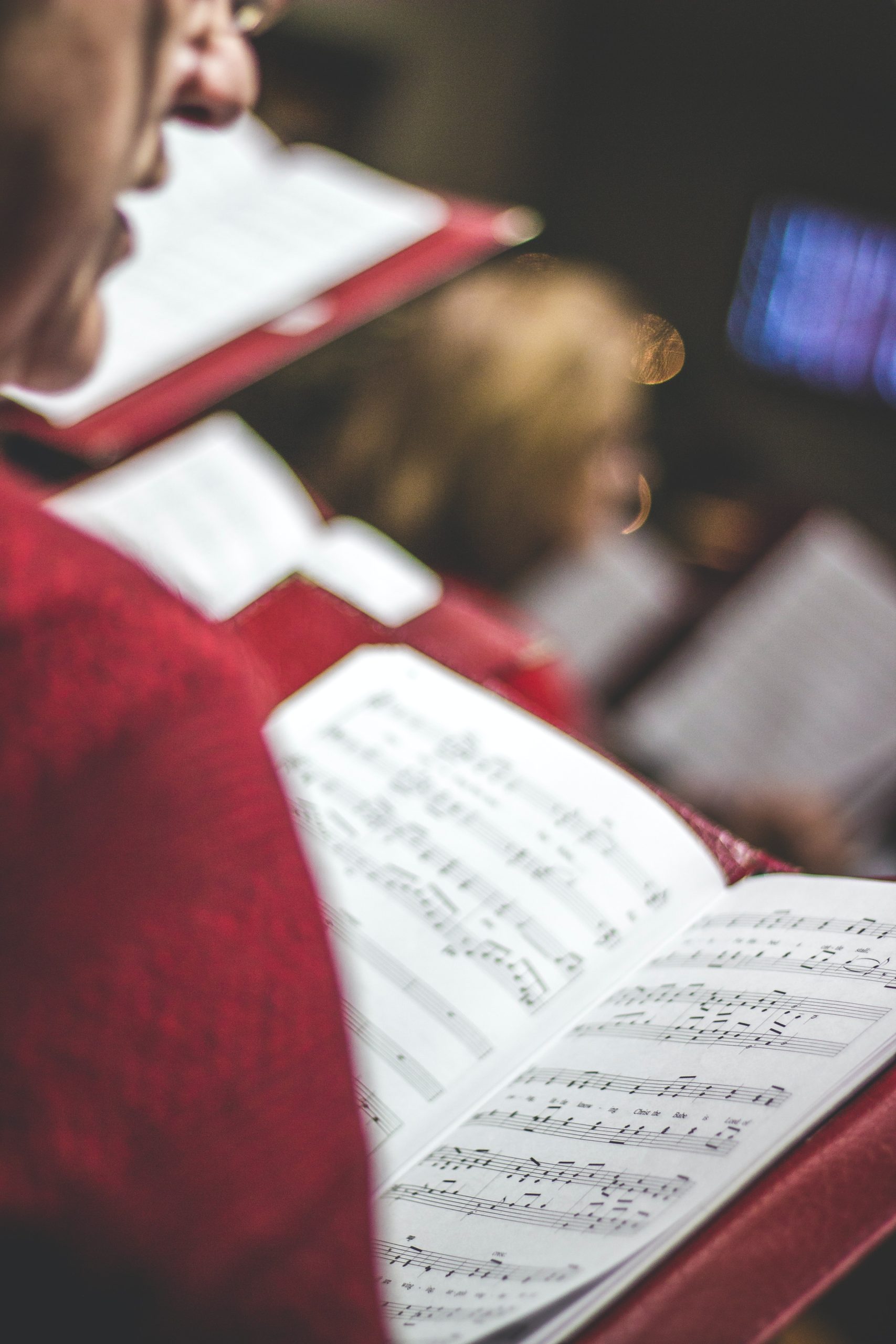Lifestyle
‘Tis the season to be jolly: singing Christmas carols together isn’t just a tradition, it’s also good for you

The spread of carols expanded during The Reformation in the 16th century with the replacement of Latin text in church music with language spoken by everyday people. (File Photo: David Beale/Unsplash)
On a December night 50 years ago, Eastern Airlines Flight 401 crashed in the Everglades, Florida. Miraculously, 77 people survived the initial impact but then endured a traumatic wait for rescue in the alligator infested swamp, surrounded by wreckage and jet fuel.
To lift their spirits, they sang Christmas carols.
What drove these survivors to sing in such distressing conditions? What is it about group singing that has the remarkable ability to bring people together, express deep emotions, and feel connected with each other?
United in song
It’s no coincidence that shared moments in life are often accompanied by singing together. As a leisure activity, group singing engages many beneficial biological, psychological, behavioural and social processes.
For example, when we sing, we consciously manage our breathing, unlike when we speak or are at rest. Managing our breathing during singing affects heart rate variability, and research demonstrates group singing can synchronise singers’ heart beats and breathing patterns. To borrow a line from a well-known song, when we sing in a group it is as if “our hearts, they beat as one”.
This physiological synchronisation may partly explain some of the positive subjective effects of group singing such as bonding and social connection. Singing together increases the feel-good hormone oxytocin and improves mood, helping us to bond with our fellow singers as we “perform” healthy relationships.
Group singing also has psychosocial benefits for people living with a range of health conditions. Such benefits include building resilience, enhancing mood, creating a sense of belonging and purpose, improving quality of life, and promoting flourishing and wellbeing. Research shows that group singing can improve individual and social wellbeing for people with Parkinson’s and their caregivers, mothers with post-natal depression and people living with cancer, to name just a few examples.
While many of us think of singing as a performance, these studies suggest that singing is a feel-good activity available to anyone willing to try it. Thought of in this way, singing is no longer about “sounding good” but becomes a widely available and easily accessible tool for building wellbeing and belonging.
The origins of carolling
The Christmas tradition of singing together to feel uplifted has existed for centuries. English historian Professor Ronald Hutton traced the origins of carolling to the followers of Saint Francis of Assisi in the 15th century. Prompted by a need to raise spirits during long, bleak winter months, these friars sang the first Christmas carols while holding hands and dancing in a circle.
The spread of carols expanded during The Reformation in the 16th century with the replacement of Latin text in church music with language spoken by everyday people. This helped bring carols into church services, allowing everybody to join in congregational singing.
In the 20th century, community carol singing took yet another form that led to one of Australia’s favourite Christmas traditions. While walking home on Christmas eve in 1937, Melbourne radio announcer Norman Banks saw an elderly woman through a window. She sat alone in candlelight singing with her radio to Away in a Manager.
It inspired him to create the first Carols by Candlelight to help lonely people share in the joy of Christmas time. In 1938, 10 000 people gathered for the inaugural celebration. Since then, community carol singing events have expanded across Australia and involved some of our most notable Australian vocalists, including recently lost legends Olivia Newton-John and Judith Durham.
Singing in person
As we continue to navigate the COVID-19 pandemic, community connection and comfort are needed more than ever. Group singing suffered during the pandemic.
Lockdowns prevented groups world wide from meeting, with many resorting to virtual sessions in place of face-to-face gatherings. Recent research shows that while singing with others over Zoom is better than not singing at all, the psychological benefits may not be quite the same as singing in person.
On the plus side, the uncertainty around in person group singing spawned some wonderful online events like Couch Choir and The Sofa Singers. Others saw the humorous side, with a satirical call to ban plosive consonants like “p” and “b” because they increased the risk of spread of Covid?.
What’s really under the Christmas tree?
While new variants of COVID continue to proliferate, you don’t need to sing with thousands of others in a park at Christmas to reap the many benefits of group singing.
This Christmas – or whatever you celebrate – why not take the opportunity with friends and family to dust off some favourite songs to experience the positive effects of belonging and sharing with others.
When you sing together, what you really get for Christmas isn’t just more socks or the latest techno gadget – it’s the real gift of joyful human connection.![]()
Wendy Hargreaves, Senior Learning Advisor, University of Southern Queensland and Melissa Forbes, Associate Professor in Contemporary Singing, University of Southern Queensland
This article is republished from The Conversation under a Creative Commons license. Read the original article.





















